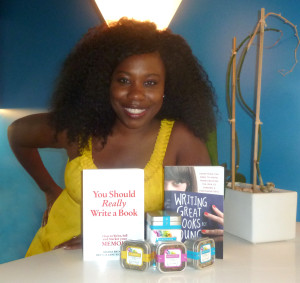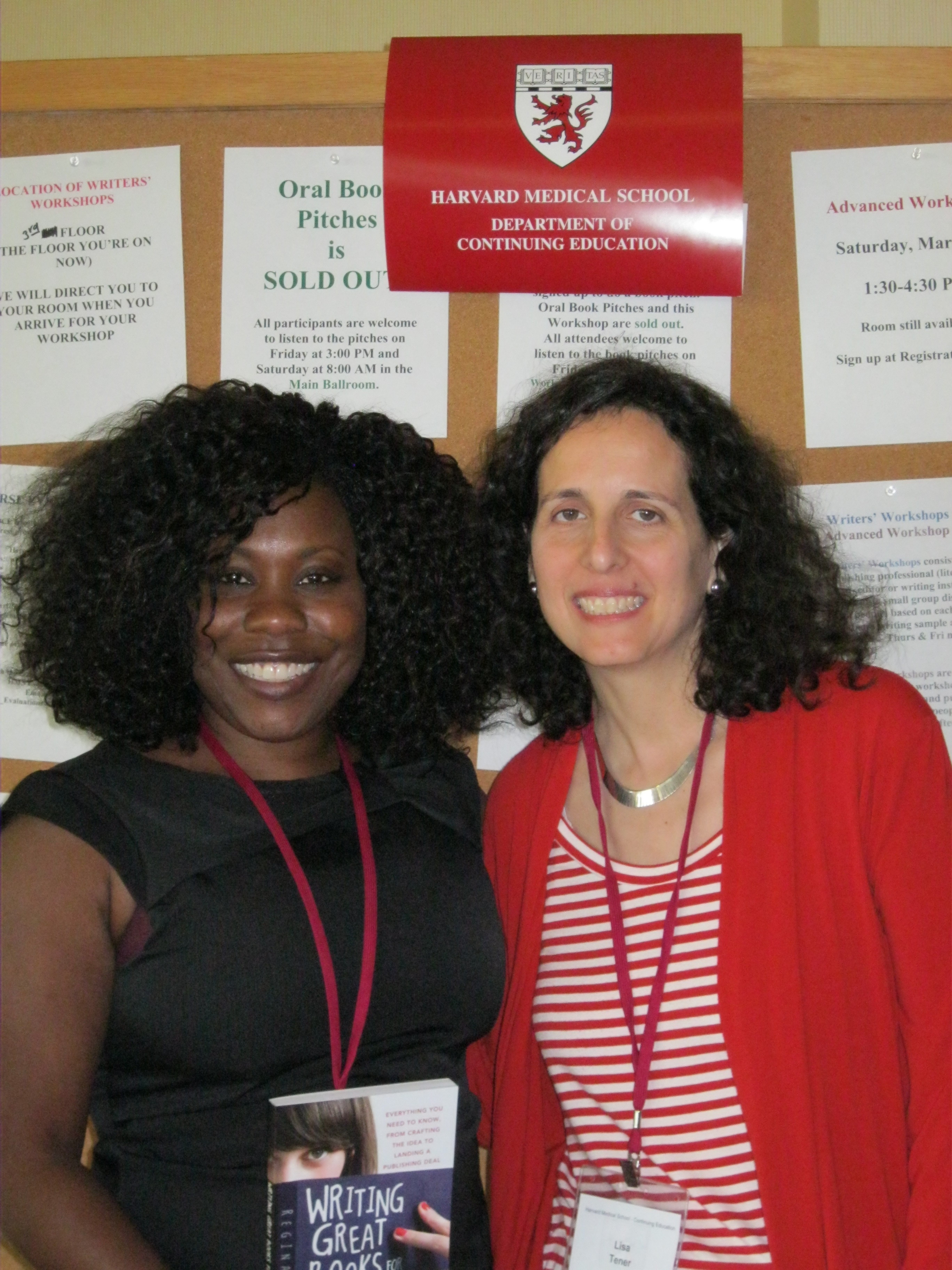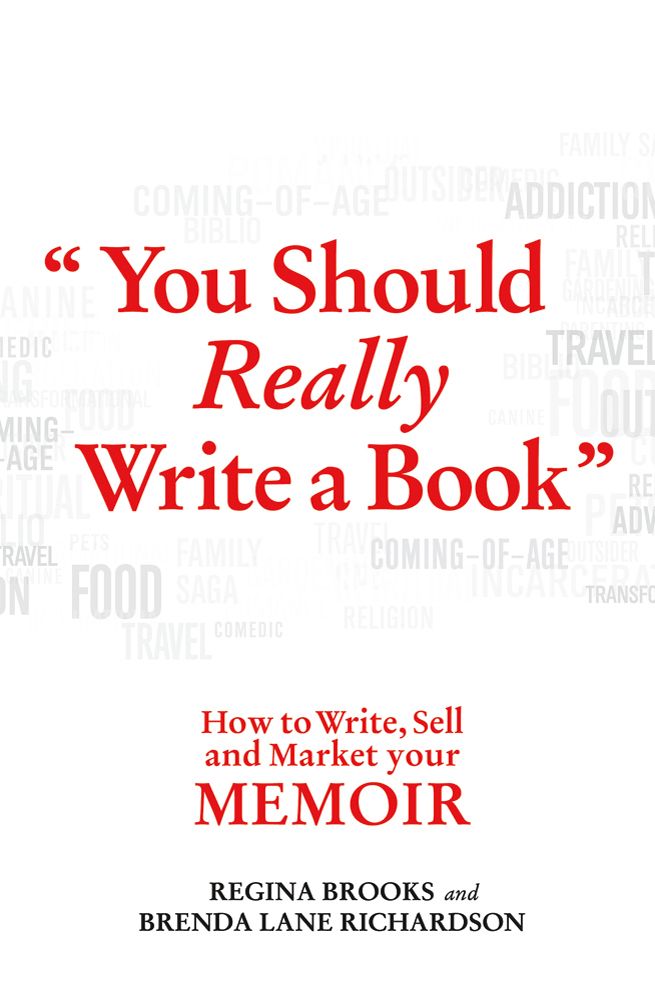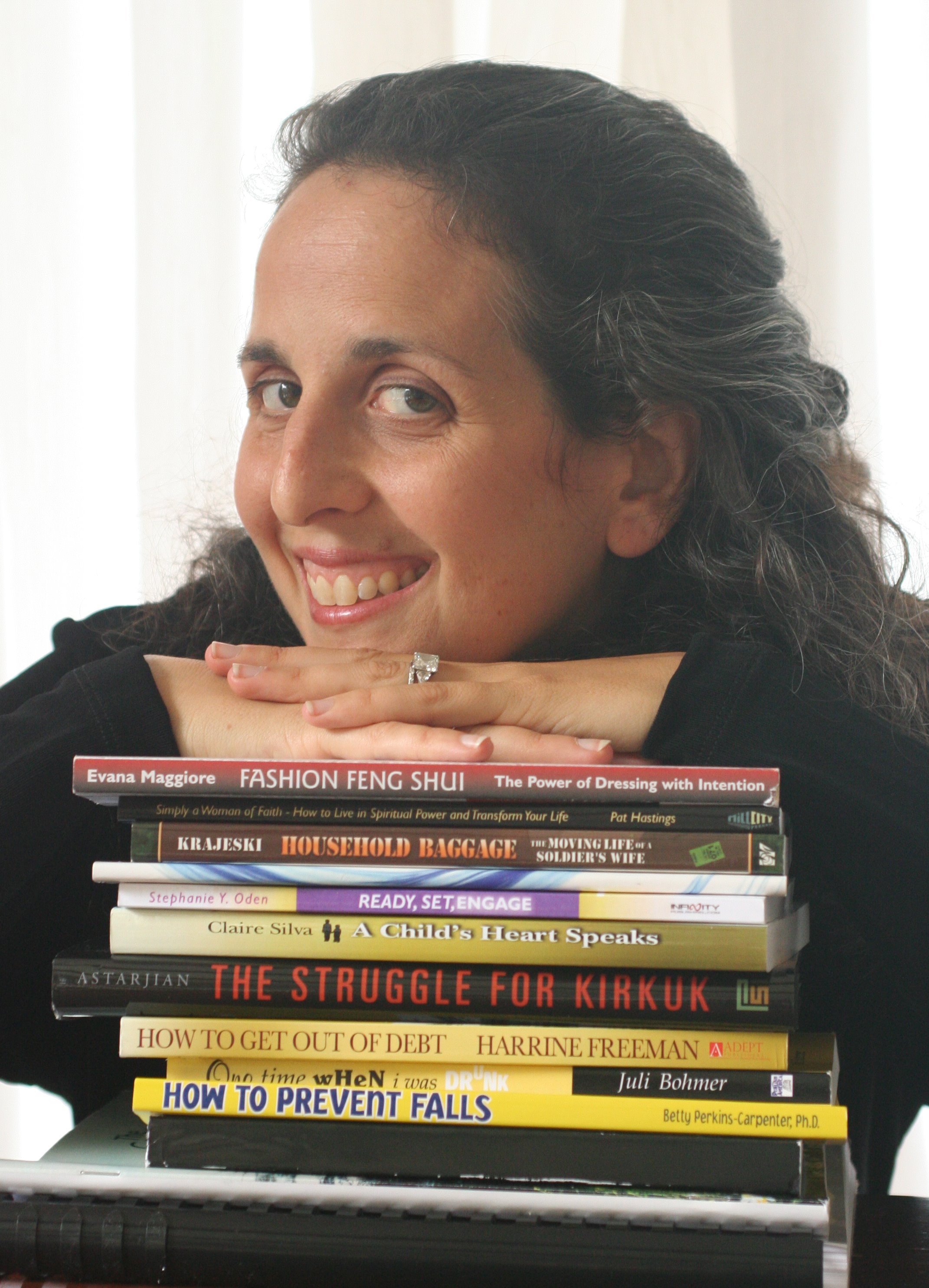
Not long ago, participants in my Bring Your Book to Life Program had the opportunity to ask questions and get answers from a wonderful literary agent and author, my friend, Regina Brooks. Not only did Regina provide insight and insider information about the publishing industry, but she gave special insights into writing and publishing a memoir.
As co-author of You Should Really Write a Book: How to Write, Sell and Market Your Memoir, Regina provided advice that I know you’ll want to hear. [And you can win a copy of her book–read on]
Rachel Horwitz has generously transcribed our class and picked some of the most powerful nuggets for this post (and I added a few asides).
Lisa: Just to make sure everyone on the call is on the same page, can you describe what literary agents do?
Regina: An agent is a person who is essentially a manager for an author. They negotiate contracts, help authors understand trends, shop the book and prepare the project to entice editors or publishers. They are also responsible for ensuring you get royalty statements and mediating issues between the author and publisher such as during cover art disputes.
Lisa: Everyone wants to know, are agents willing to work with new authors?
Regina: Yes. Generally speaking we take ten new authors or so a year. But to be frank, for those of us in the business, it’s easier to take on one author with 10 books in them than 10 authors with one book in them. When you research agents, look for ones willing to take on new clients. New agents are always looking for new talent to franchise and create a brand out of as well.

Lisa: I’d like to point out that a great way to meet agents who are looking for new authors is to attend writing conferences. And anyone writing a health or medically related book should consider Harvard Medical School’s CME Publishing Course, where Regina and I both teach. This year it takes place at the Cambridge Marriott on March 14 -1 6. Regina, other than conferences, can you share some advice for meeting agents?
Regina: The playing field has leveled and nowadays it is much easier to connect with agents. It may surprise some people, but referrals are the best way to get in contact with an agent. Ask a friend with an agent if their agent is taking new clients in your field. If they’re not, they might give you contacts who are. Also, most agents are on twitter, so you can connect with them there and establish a relationship.
Lisa: Once someone feels ready to approach agents, what are the top three things those agents will be looking for?
Regina: 1. A strong author platform, 2. An incredible hook and 3. Solid writing ability. It’s okay to only have two of these three pieces covered when you query, but ideally all three factors are strong. Also, have your book proposal written and a few chapter samples ready to share. Unless it’s a memoir, in which case the narrative should be completed before you query.
Lisa: There are smaller, boutique agencies and larger talent houses for agents. Can you share the difference between boutique agencies and large houses and some of the advantages of each?
Regina: At a boutique agency, it’s easier to contact your agent at any given time. They also seek to nurture their folks longer and tend to stay with you for the long haul. However, they manage a lot of tasks themselves (editorial, sub rights, publicity) whereas bigger houses will have other people working on those tasks. As for large agencies, they tend to have larger teams, each working on a different sector of the book business and likely have deeper connections than a boutique agency. In this case, as the author, you’re potentially working with more people. These agencies are also more likely to move their agents in and out, so you may or may not keep your agent over time.
Lisa: Another question that many class participants sent in is whether publishers are interested in selling memoirs written by unknown authors.
Regina: It can be harder to get publishers to bite if you’re not well known, but there’s still a market. Since you won’t come to the table with a celebrity persona, publishers want to know you can do what you say you’ll do to promote the book. Having experience in some sort of marketing plan prior to sending your proposal is great. After all, throughout your platform, only 1-5% will actually buy your book.

Lisa: People also want to know if you recommend posting a memoir snippet on a blog or publishing it in a magazine before getting the book published.
Regina: Yes, you can, but keep it short. That can be a great way to develop an audience.
Lisa: Can it ever be detrimental?
Regina: Yes, especially if people in the audience don’t connect with the material.
Lisa: On a similar note, could you let emerging authors know common mistakes they should avoid?
Regina: Absolutely. Not trying hard enough to get people excited about their topics. That’s a common mistake. They feel they’re gloating or being pushy, but you’re not. Also, sometimes people ignore immediate connections that will help publicize their book because they aim too high. Or even more common, people get overwhelmed with social media when it’s all about engagement more than the numbers.
Lisa: Any tips for how-to writers?
Regina: Make sure someone else hasn’t already told people “how-to” in your unique way.
Lisa: Any final advice?
Regina: Research is your best friend. Research your topics, other books, and agents. The more you know, the better off you’ll be when it comes time to submit to publishers and editors.
Writing a memoir? I highly recommend You Should Really Write a Book: How to Write, Sell and Market Your Memoir. Want to win a copy:
Have any questions? Ask them below and Regina or I will answer. Best question or most insightful comment wins a copy of Regina’s book!
Regina Brooks is the founder and president of Serendipity Literary Agency LLC, based in Brooklyn, New York, which represents a diverse base of award-winning clients in adult and young adult fiction, nonfiction, and children’s literature.
You can read more about her bio on the above website, but if you want to meet her in person, join us both at Harvard Medical School’s CME publishing course on March 14-16, 2013. There, you can ask Regina–and all the faculty– agents, publishers, book writing coaches, like me–any questions about publishing as well as get feedback and advice on your specific book concept.







